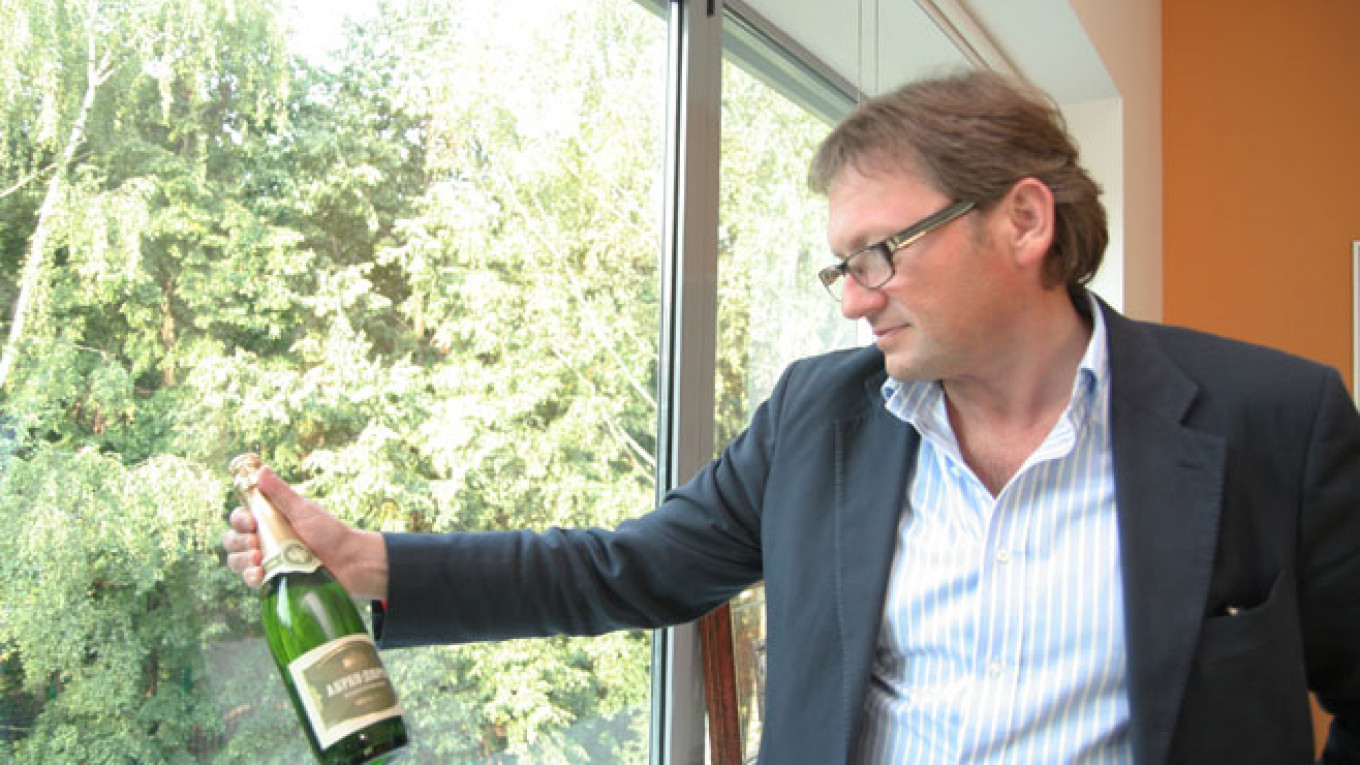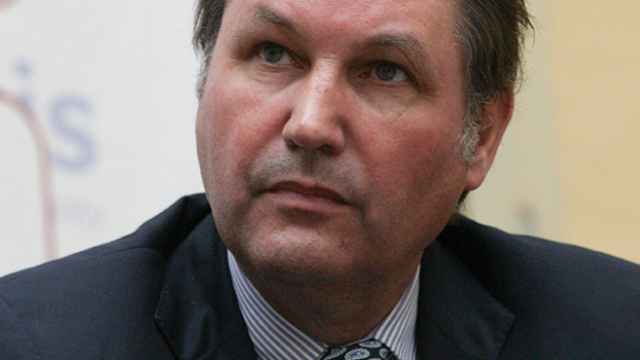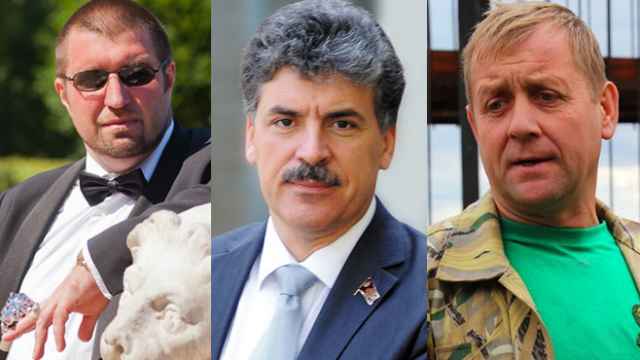When it comes to elections and politics, Russian businessmen usually remain tight-lipped.
Following the announcement made by party leadership that he and other prominent entrepreneurs would join the board of the Right Cause political party, Wimm Bill Dann founder and Petrocas Energy Group co-owner David Yakobashvili, claimed innocence. "I will come and listen, but I am far from politics. I'm not joining," Yakobashvili told The Moscow Times.
Metals tycoon and billionaire Oleg Deripaska has also denied reports that he would join the board of the Right Cause party.
There is a reason for this adamant lack of interest. Russian business has learned two major lessons over the past 15 years: political engagement is more trouble than it's worth and no pro-business political party has been a success.
Five years ago, billionaire entrepreneur Mikhail Prokhorov attempted to run for elections at the helm of a previous incarnation of the Right Cause party. He wound up expelled from it, on the orders of Kremlin officials.
On March 23, Russia's business ombudsman Boris Titov, the new leader of the latest incarnation of the Right Cause party, tried to persuade businessmen to join the party board. A formal successor to the liberal political movement, the Right Cause party now focuses on business interests, rather than democratic values.
The same day, Russian President Vladimir Putin sat in on the first session of a working group — formed in mid-February— to promote dialogue between businessmen and law enforcement. Analysts agree the main challenge businesses in Russia face is pressure from authorities and a lack of justice.
Even Putin admits this. In December 2015 he referred to the following unflattering figures: In 2014, of 200,000 criminal cases involving businessmen, only 15 percent led to sentences, but 80 percent of defendants lost their businesses. "They were pressured, robbed and then let go," he said.
"You can clearly see a new wave of arrests on economic grounds over the last 15 months," says Olga Romanova, an activist specializing in unjust trials. Romanova's observations are confirmed by official numbers. In 2015 there was a 22 percent rise in criminal cases opened in regards so-called economic rules of the Criminal Code. The number of pretrial detentions, widely seen as a tool for extorting businessmen, grew by 50 percent, according to Sergei Taut of the Business Against Corruption center.
Putin has voiced support for plans to improve communication between business and law enforcement. Reports have indicated that the Kremlin is prepared to amnesty businessmen who commit economic crimes for the first time, among other liberalizing measures.
But it will hardly change the bigger picture.
"Liberalization means you might now get seven years instead of 10," says Yana Yakovleva, head of the Solidarity with Business NGO. "It won't affect the investment climate. If Putin would at least publicly agree that the justice system is itself a tool of unlawful property redistribution, things would look different."
In 2015 the Russian economy showed a drop of 8.4 percent in investment (see Op-Ed, page 5).
The day after the business-law enforcement working group was formed, the owner of Domodedovo Airport Dmitry Kamenshik was arrested. The arrest has been interpreted as another attempt to seize private business through nefarious means.
Boris Titov hasn't risked commenting on the matter — as either a party leader or an ombudsman, and exactly in the same manner as big businessmen do when it comes to politics.
Titov has made no secret of the fact that he took control of the party with the Kremlin's blessing. He sees himself more as an officially approved lobbyist than a political figure. Some analysts have even assumed his honesty might be his trump card — from a business perspective, loyalty in Russia is seen as a significant asset. It's easier to accomplish things behind the curtain than through political process or even at working groups.
Loyalty might be enough to earn a place in the Duma, but only if it comes with support from above, which is questionable. A source close to the Kremlin expressed doubts that Titov's party will make it. And judging by recent data, the party base is shrinking rapidly.
Contact the author at m.fishman@imedia.ru
A Message from The Moscow Times:
Dear readers,
We are facing unprecedented challenges. Russia's Prosecutor General's Office has designated The Moscow Times as an "undesirable" organization, criminalizing our work and putting our staff at risk of prosecution. This follows our earlier unjust labeling as a "foreign agent."
These actions are direct attempts to silence independent journalism in Russia. The authorities claim our work "discredits the decisions of the Russian leadership." We see things differently: we strive to provide accurate, unbiased reporting on Russia.
We, the journalists of The Moscow Times, refuse to be silenced. But to continue our work, we need your help.
Your support, no matter how small, makes a world of difference. If you can, please support us monthly starting from just $2. It's quick to set up, and every contribution makes a significant impact.
By supporting The Moscow Times, you're defending open, independent journalism in the face of repression. Thank you for standing with us.
Remind me later.







